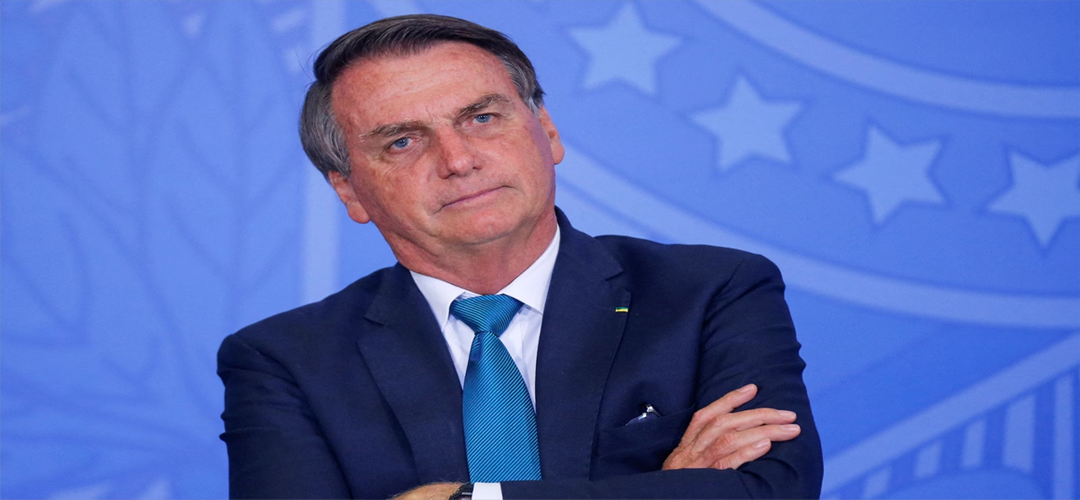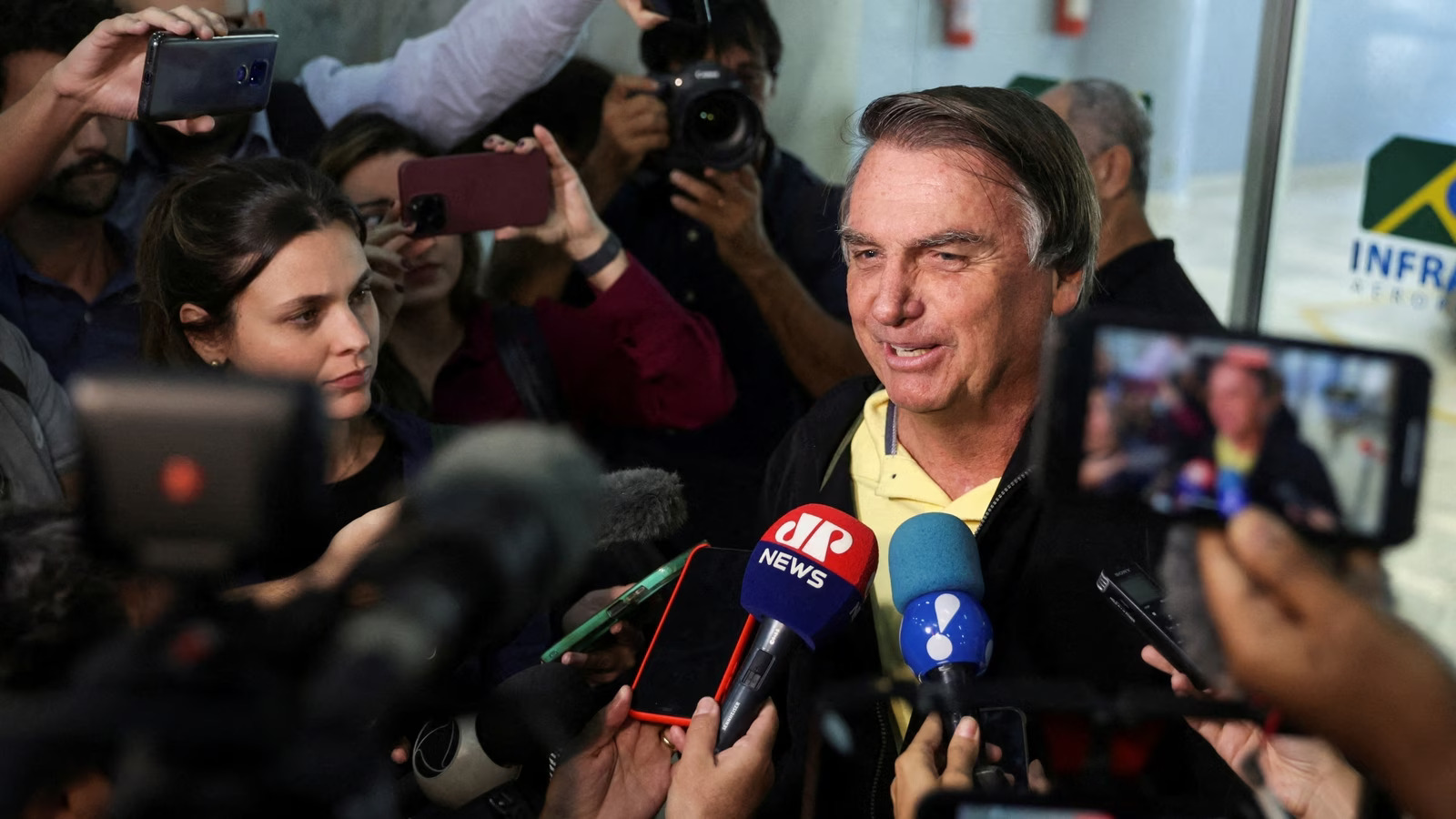Brazil: Cornering of Bolsonaro
July 15, 2023 | Expert Insights

Electoral bans on viable political opponents have become contentious in democracies and pseudo-democracies worldwide. The recent ban on Jair Bolsonaro, the former President of Brazil, from running for public office has raised concerns about the erosion of democratic norms. The efforts to ban Imran Khan in Pakistan and Donald Trump in the U.S. illustrate this growing tendency.
On June 30, 2023, Brazil's Supreme Electoral Court (TSE) voted 5-2 to ban former President Jair Bolsonaro from running for office for eight years. The court found Bolsonaro guilty of abusing his power by making unfounded claims about the country's voting system ahead of last year's election. Bolsonaro had repeatedly claimed that the electronic voting machines were vulnerable to hacking and fraud without providing any evidence to support his claims. However, even to the most rabid Bolsonaro opponent, the grounds for disqualification appear rather flimsy.
Background
Jair Bolsonaro's presidency was marked by controversies and polarizing policies, not unlike that of Mr Trump in the United States. His critics argue that his inflammatory rhetoric, divisive actions, and handling of the COVID-19 pandemic warrant an electoral ban to protect democracy. While the sentiment may be justified, any such ban must be based on solid evidence and an objective interpretation of the rule of law. There are genuine concerns that such tendencies reflect a broader trend of suppressing viable political opponents.
The TSE's decision has been met with mixed reactions. Some have praised the court for upholding the integrity of Brazil's democracy, while others have accused the court of political bias. Bolsonaro has vowed to appeal the decision, and his supporters have protested in the streets.
The TSE's decision is significant because it sets a precedent for how other countries might deal with populist leaders who make unfounded claims about election fraud. In recent years, there has been a growing trend of populist leaders around the world who have used these claims to undermine trust in democratic institutions. In some cases, this has led to violence and even the overthrow of governments.
The TSE's decision is a reminder that democracies must be vigilant in protecting themselves from these threats. One way to do this is to ensure that strong laws are in place to punish those who spread false information about elections. Another is to educate the public about civic engagement's importance and encourage them to vote.
However, the TSE's decision also raises concerns about the potential for ruling elites to use the law to "minus" viable political opponents. This is a phenomenon that has been seen in other countries, such as Pakistan and the United States. In Pakistan, for example, the government of Imran Khan was recently ousted in a no-confidence vote. Khan has accused the United States of being behind the coup, and now the powerful military is close to barring him from public office, if not incarcerating him for some indefinite period.

Analysis
The TSE's decision on Bolsonaro is a reminder that ruling elites can use the law to suppress political dissent. Democracies must be vigilant in protecting themselves from these threats and ensure that the law is used fairly and impartially.
In Pakistan, Imran Khan is threatened to be banned from electoral processes. This case highlights how electoral bans can be weaponized to side-line opposition leaders and consolidate power within the ruling establishment.
Similarly, the United States witnessed a debate surrounding the eligibility of Donald Trump to run for office following the Capitol Hill insurrection in January 2021. Trump's critics argue that his role in inciting the violence was a breach of democratic norms, justifying an electoral ban. However, this controversy raises questions about the impartiality and objectivity of the ban's proponents, as it could be seen as an attempt to suppress a popular political figure and silence a significant portion of the electorate. He has also been impeached twice and currently faces several legal challenges. It is possible that Trump could be banned from running for office again in the future.
When ruling elites are able to silence their critics, it undermines democracy and opens the door to authoritarian rule. It is important to defend the right to free speech, even for those with whom we disagree. Otherwise, we risk living in a world where only those who toe the line can participate in the political process.
In the case of Bolsonaro, it is important to note that he was not banned from speaking. He is still free to express his views, but he is no longer allowed to run for office. This is a significant restriction, but it is not a complete silencing of his voice. It is also important to note that Bolsonaro's ban was not based on his political views. It was based on his actions, specifically his abuse of power by making false claims about the voting system. This is a key distinction. If Bolsonaro had been banned simply for his political views, it would clearly violate his right to free speech. However, since he was banned for his actions, the restriction is more justifiable.
Ultimately, the question of whether or not Bolsonaro's electoral ban is justified is a complex one. There are strong arguments on both sides of the issue. However, it is important to remember that the right to free speech is not absolute. There are times when restrictions on free speech are justified, such as when those restrictions are necessary to protect democracy. In the case of Bolsonaro, it is possible to argue that his electoral ban was justified to protect Brazilian democracy from his false claims about the voting system.
The recurring pattern of electoral bans against viable political opponents reveals a troubling trend in both established democracies and pseudo-democracies. Such bans can be employed strategically by ruling elites to stifle opposition, perpetuate their grip on power, and limit the choices available to voters. This erosion of political pluralism undermines the very essence of democracy, hindering the emergence of new voices and ideas that are essential for a vibrant and inclusive political landscape.
Assessment
- To counteract this growing threat, it is crucial to advocate for reforms that ensure transparency, impartiality, and accountability in the electoral process. Independent judiciary systems, unbiased election commissions, and robust checks and balances are vital to prevent the arbitrary exclusion of political opponents.
- Additionally, fostering a culture of political tolerance, encouraging constructive dialogue, and promoting the freedom of expression is essential in cultivating an environment where diverse political perspectives can coexist and flourish.
- Citizens, civil society organizations, and international actors must remain vigilant and advocate for electoral reforms that protect the integrity of the democratic process, preserve political plurality, and ensure equal opportunities for all political actors. Only through such efforts can we safeguard the principles of democracy and prevent the marginalization of viable political opponents.








Comments